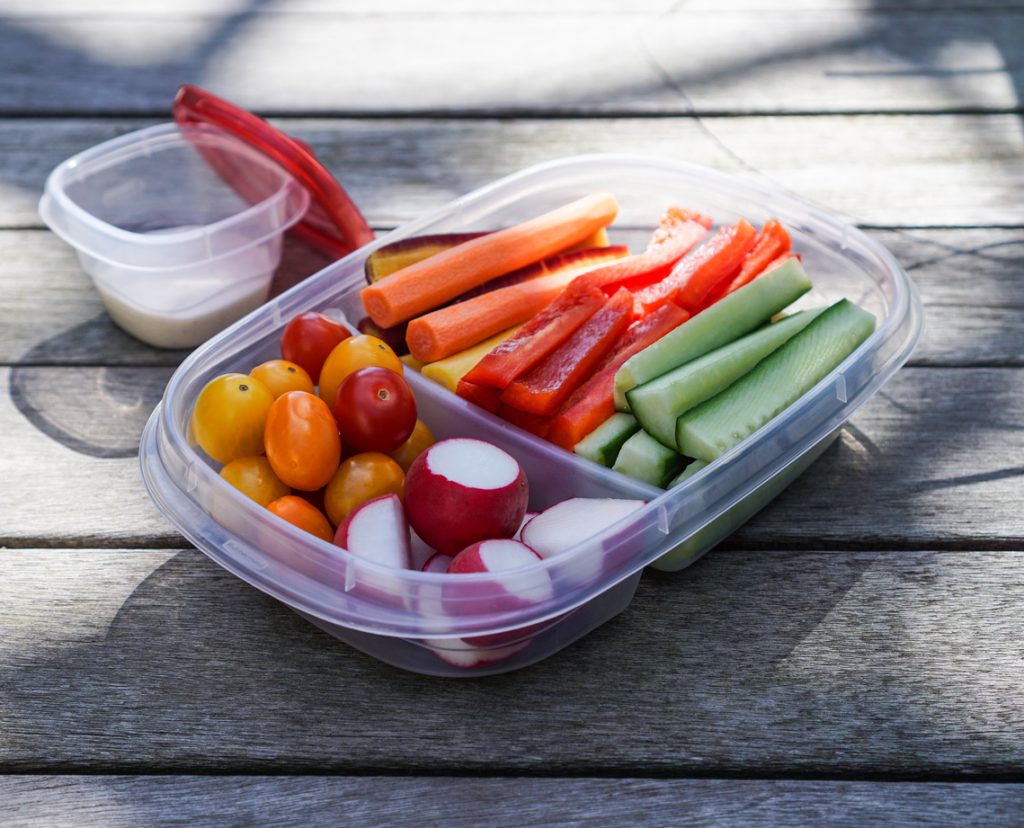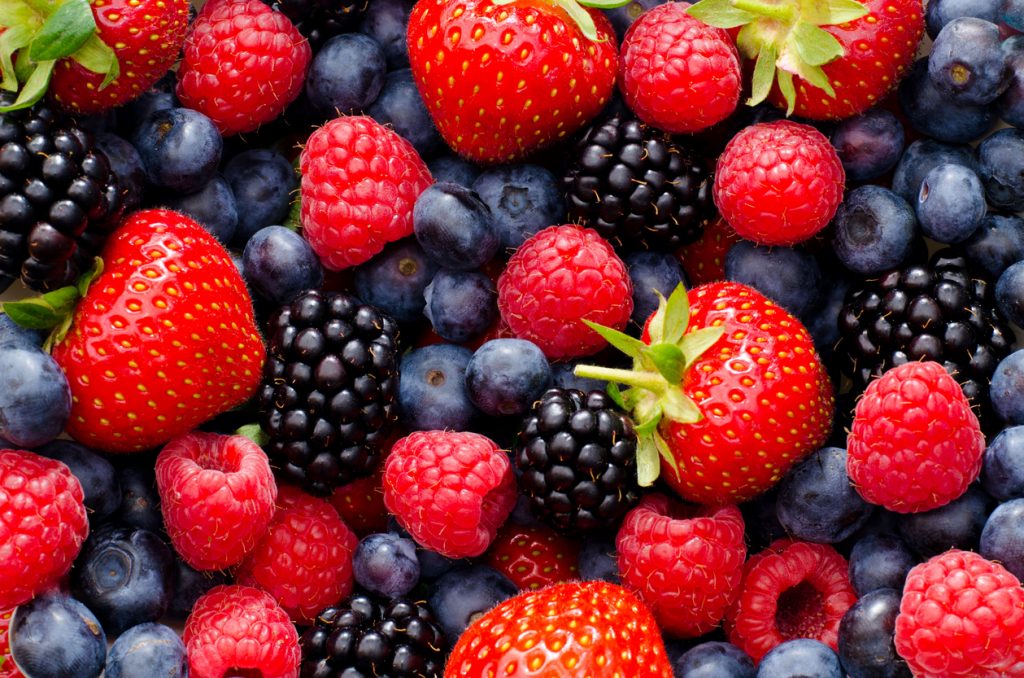Yeah, yeah…we’ve all heard it from one person or another, “eating organic is the way to go”. But when you’re pressed for time and can’t find the organic food you’re looking for, or the organic price tag makes you do a double-take, you can’t help but wonder…is it really worth it?
The short answer is yes, and the degree to which eating organic matters varies depending on the fruit or vegetable in question. Here’s a quick overview of the potential benefits of buying organic produce for your family.
And since we know you’re busy parents, we’ve included a quick reference guide from the Environmental Working Group (EWG) that identifies which fruits and veggies tend to be the most contaminated. Use this list to help you decide when it makes sense to spend the extra money to buy organic, and when it might not.
Benefits Of Eating Organic
Fruits and vegetables labeled and sold as organic are grown without using most pesticides or fertilizers with synthetic ingredients. In addition, they don’t undergo irradiation treatments. Their seeds and transplants are chemical-free, and the fertilizer used is natural.
Why is this important? Because non-organic farmers spray synthetic pesticides on crops to kill weeds and insects. As the plants grow, they absorb these pesticides, and the residue lingers on fruit and vegetable skins all the way to your kitchen, even after you wash them.
“EWG’s analysis of tests by the U.S. Department of Agriculture found that nearly 70 percent of samples of 48 types of conventionally grown produce were contaminated with pesticide residues.”
Avoid Pesticides
Pesticide exposure can harm us in serious ways. It is particularly hard on children, who eat more food than adults relative to their body size. Kids are also less capable of processing chemicals in their small bodies.
Research has shown that in developing children, pesticide exposure can contribute to neurological problems. This in turn can impair learning, memory, and attention. You want to keep your kids as far away from pesticides as possible.
“People who eat organic produce ingest fewer pesticides”.
A study done by the University of Washington found that people who report they “often or always” buy organic fruit and vegetables had significantly less organophosphate insecticides in their urine samples, even though they reported eating 70 percent more servings of produce a day than adults who say they “rarely or never” purchase organic.”
Avoiding pesticides and herbicides is probably the most compelling reason to look for organic vegetables and fruits.

More Nutrients
Beyond this, there is some evidence that organic fruits and vegetables have more nutrients than conventionally grown produce.
One study from Newcastle University in England found that organic produce had up to 40 percent higher levels of vitamin C, zinc, iron and other key nutrients.
Nitrogen plays a key part in this. It’s the element that allows plants to absorb water and nutrients. In organic soil, nitrogen releases slowly and plants can take their own sweet time to grow. This results in more nutrients per plant.
In conventional farms, the soil can be drenched with chemical fertilizers that ramp up the nitrogen levels to make the veggies grow faster. The plants may get to market quicker, but the process gives them less time to develop nutrients they way nature intended. Eating organic can result in getting more nutrient rich food.
Fully Ripened Tastes Better
Conventional produce has to take a long road trip to get to market. This means the produce is almost always picked underripe. Farmers don’t want it to bruise in transit.
When the unripe fruits reach their final destination they look unappealing. The produce may then be chemically ripened in a warehouse before heading to the grocery store.
Also In Beenke:
This chemical process doesn’t allow the fruit or vegetable to reach its full nutrient potential. It can also result in bland tasting produce. Eating organic, therefore, can result in better tasting food.
When To Choose Organic
Now that you’ve seen the research, let’s be real for a minute. When all is said and done, none of us are perfect. It may not make sense for your busy schedule or tight budget to stick to a 100% organic and completely local diet all the time. That’s okay.
Also In Beenke:
The effects of eating organic on your health and the environment are gradual and cumulative. Plus, it depends on which fruit or vegetable you are eating – some are more impacted by chemicals than others.

The EWG has made two great guides to help with this! “The Dirty Dozen” lists the fruits and vegetables with the highest pesticide residues. This is the produce you want to go out of your way to find organic.
The Dirty Dozen (2017):
- Strawberries
- Spinach
- Nectarines
- Apples
- Peaches
- Pears
- Cherries
- Grapes
- Celery
- Tomatoes
- Sweet Bell Peppers
- Potatoes
“The Clean Fifteen” guide lists the fruits and vegetables that absorb the least amount chemicals. This group isn’t much different from its conventionally raised counterpart, so less need to panic if you find you’re not eating organic.
The Clean Fifteen (2017):
- Sweet Corn
- Avocados
- Pineapples
- Cabbage
- Onions
- Sweet Peas (frozen)
- Papayas
- Asparagus
- Mangos
- Eggplant
- Honeydew Melon
- Kiwi
- Cantaloupe
- Cauliflower
- Grapefruit
Saving Money On Organics
Like we said, we know buying organic can be pricey. One option you might not have thought of is an online market, like Thrive Market. They offer natural, organic and non-GMO foods at wholesale prices.
Also In Beenke:
The food is shipped right to your doorstep, which is pretty neat. Plus they offer a lowest price guarantee on inventory and are doing a cool special right now where they match what you spend. It’s worth checking out!
Beenke’s Take-Aways:
- Eating organic produce reduces your potential exposure to pesticides and herbicides, and it may provide more nutrient-dense and flavorful food.
- Use the EWG’s “Dirty Dozen” and “Clean Fifteen” guides to help you determine when it’s worth the extra time and money to shop organic for a particular fruit or vegetable.
- Local farmer’s markets are a great resource for cost-effective organic produce if you can find one near you. Also, try a wholesale online market like Thrive Market that specializes in organic and non-GMO foods.
Do you always eat organic? Why or why not? How do you find organic produce and stay within your budget? Share your thoughts and comments on eating organic in our Food Community!












